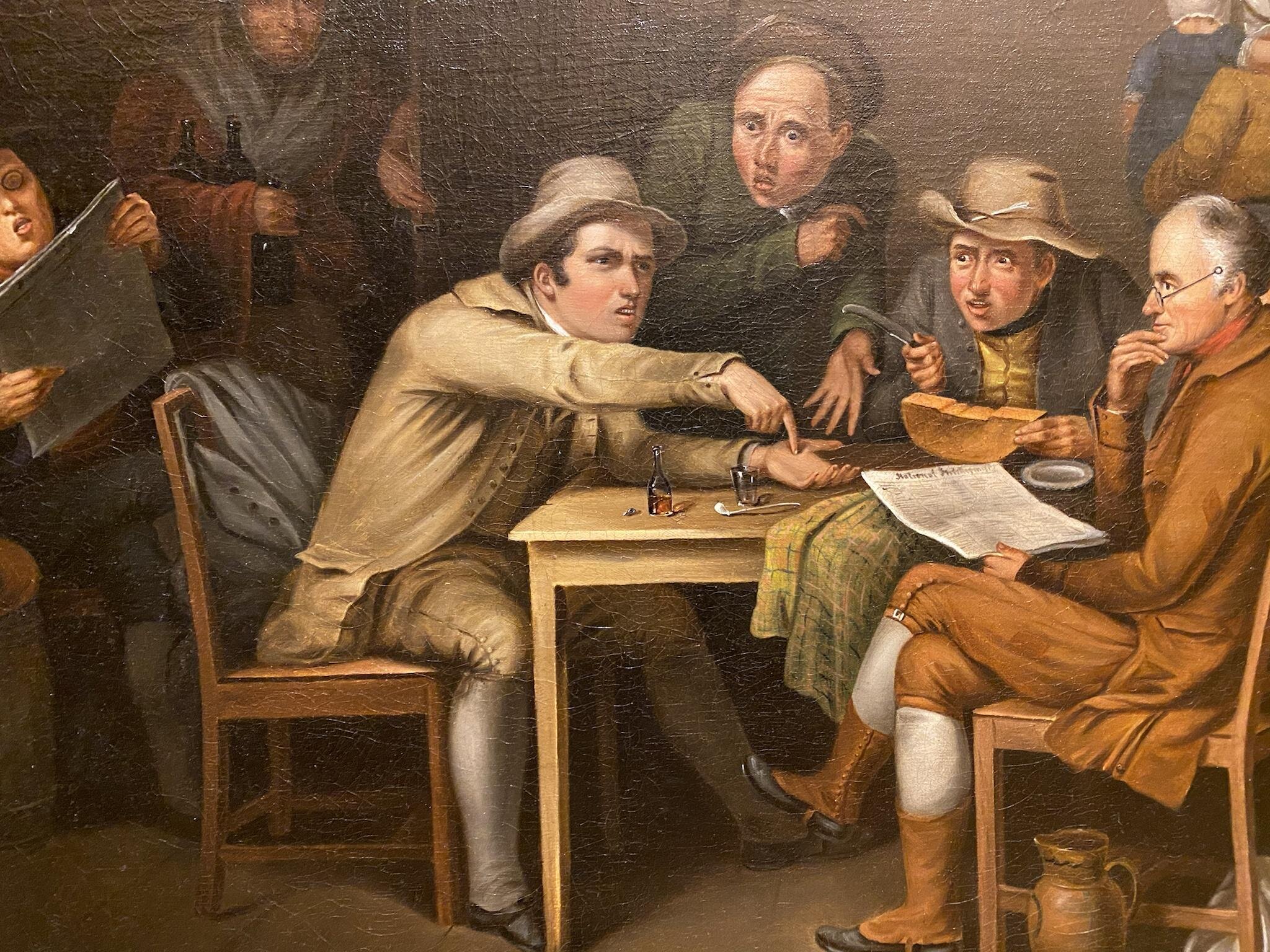The Problem of Endless Deferral: On the Student Loan Crisis in the Age of Coronavirus
This past weekend, Edgar and I attended my cousin’s wedding. It was a wonderful event and, in all honesty, I love weddings. All that being said, only about one in five people attending the wedding were properly wearing masks, despite the fact that there was a county mask mandate until early October. As fun as it was, I couldn’t avoid feeling a certain amount of despair about how long we’re going to be in this pandemic.
Still, we did our best to put on a brave face, despite the fact that my extended family seemed intent on pretending nothing was wrong. We had a few nice chances to catch up, and it came up in conversation that everyone was doing fairly well, all things considered.
For us, a big part of why we were doing well, personally, had to do with the fact that we were more solvent than normal, a fact largely related to not having to pay student loans for the past eighteen months. Given that I don’t follow sports, I tend to rely on this – as well as my hatred for five-over-ones, jarring historical details like the probability that Benjamin Franklin was a serial killer, and the fact that I run a blog – as conversational screens to keep people from asking me about something that might lead to a political discussion. Not having it felt unusual.
Pictured: a representation of the University.
You see, one of the things that I have spent a great deal of time worrying about in the course of my adult life is the student loan crisis. This has seemed to be a crisis since the time I was in graduate school and first (belatedly) becoming conscious of the fact that I had hawked my future for a degree in English. I know, I know, save the jokes about liberal arts majors; society at large ignoring our contributions is a major reason we’re in the state we’re in.
I’d basically resigned myself to paying the minimum amount and trying to wait out the clock on them. I’m an adjunct. I’m not about to pay that off anytime soon.
Let’s look at the general situation: student loans, outside of some very, very specific and very, very narrow circumstances, cannot be discharged through bankruptcy (thanks, Joe Biden.)
This is notable, because it means that there’s a (at the time of this writing) $1.57 Trillion Dollar debt owed by a total of 43.2 million Americans. While smaller than the housing bubble of 2008 and the Dot Com bubble of 2000, it is not smaller by even one order of magnitude, and with us still not completely recovered from 2008, it’s possibly deadly.
The new popular game for e-sports is apparently rocket league. I know nothing about it and I’m going to keep it that way.
This bubble is largely driven by the structure of higher education funding in the United States – instead of funding schools directly, loans are given to the students, and then they pay them back later on. Because of the lack of real limits on this, schools are incentivized to raise costs, which leads to a race-to-the-top situation with amenities, while there’s a race-to-the-bottom when it comes to providing the core service. Students want rock climbing walls and E-sports teams, not financially secure professors who can dedicate their attention to the task of teaching.
I write about this periodically. If you’ve followed this blog, you’ve probably seen it.
Fundamentally, I think this has to do with the hidden curriculum element of college. I’ve called universities hedge funds that occasionally produce education as a byproduct, but that education is only periodically about the actual topic: by and large, universities function as finishing schools for the middle class. So universities are hedge funds that periodically produce education, and that education is largely induction into the middle class that occasionally produces knowledge as a byproduct.
To be clear: I believe in the power of education. I believe that learning about art, science, and history is a valuable thing in and of itself. That’s part of why this all makes me so upset. Especially because of the number of highly educated people I know who work dead-end service- and office-jobs that prevent them from doing what they want (a number, admittedly, enjoy the jobs they have in these industries. I think those people are in the minority, and don’t wish to speak for them.)
This model of funding is unquestionably broken. It cannot be argued convincingly to provide an equitable distribution of education, and it largely forces recent graduates into precarious situations to pay the cost of an education that prepared them for a world that no longer exists.
What’s new?
I’m kind of not surprised that these two failed to do anything useful on the matter.
I think that there’s a very interesting and dangerous game being played with student loans. No, not the fancily-worded indenture agreements that some schools are talking about. This is a game of brinkmanship being played at the highest level.
Consider: when the pandemic started, student loans were frozen. Interest rates were set to 0, no one would have to pay. This was given its “final” extension in August, set to expire January 31, 2022. Given that this policy effects 36 million Americans of voting age who have largely a unified opinion about the matter, I cannot see this as actually being final – especially given the fact that we’re still several percentage points short of herd immunity and there are Americans who would rather take a deworming drug than a free vaccine, as well as the fact that new variants (including potentially vaccine-resistant ones) seem to be popping up with alarming rapidity, I can’t help but think that we’re not going to be out of this for a while.
This is an image of South Carolina’s 12th Congressional district.
Here’s my prediction, and I’ve been wrong in the past, but this is what I genuinely think is going to happen: I think there’s going to be another student loan deferral, probably until right before the midterm election, and then a fight over another deferral is going to be used as a cudgel in the election: Republicans will fight against it, Democrats will fight for it. Much like with abortion, it will be something that is fought for only in image, not in fact. Given the relative average youth of some congressional districts in Texas and Utah, this might allow the Democrats to pull a blue district out of those states, especially if they perform the calculus right. Given the degree of Republican gerrymandering across the country, this is the sort of weapon that they would have to bring to bear to counteract that.
This is related, in some ways, to the deferral of adulthood that I discussed in my last piece that dealt specifically with college – namely the issue of the way that America handles initiation rituals. For many college graduates, there’s the sense that life doesn’t really begin until you get that debt situation handled (after it was supposed to come with graduation from college, or license to drink, or from high school, or a driver’s license, or, or, or. There are a profusion of rituals and none are important. Much as there are many possible futures and none is real.)
Remember: this only has value because we agree it does, and more can be printed at any time. Ergo, what is being managed is not the supply of dollars, but the faith in the system.
That being said, we’re talking about the Democrats, so the best I see them as being able to do is to hold relatively where they are in terms of power. By endlessly deferring student loans, they can pull a voting block of 36 million people one direction or another, and continue to basically deliver nothing and expend essentially no political capital. The past year and a half has been an extended experiment with Modern Monetary Theory – the idea that states who print their own fiat currency can simply spend as they wish and should use taxes not to pay for things but to control inflation – and frankly it looks like it’s going okay thus far. Which fundamentally means that it doesn’t matter to the state whether student loans are paid back. It’s much better to think of it as a way to condition the population to accept narrowed horizons.
Most likely this will end with them quietly allowing the freeze to expire after the election, but it’s possible that it will linger on for a time because of special elections and the like. This is probably a dangerous situation to be in: if you’re the person who made it so those 36 million people are back to drowning in debt, then a significant portion of them are going to turn on you or drop out. The drop-out issue, especially, is a danger that the Democrats need to worry about in the next election, given how many of their campaign promises they’ve failed to actually deliver on.
I think there’s a more dangerous possibility, though: there are a small number of Republicans willing to try to flank the Democrats from the left on social programs. I’m thinking here of everybody’s favorite Strasserite, Josh Hawley, member of the treason and sedition caucus, who teamed up with Bernie Sanders at the end of last year to try to get a second round of stimulus.
We remember that one, right?
Hawley’s reputation took a bit of a beating after January 6th, and he might see canceling student loan debt as a strategy to rehabilitate his image before a presidential run in 2024 – it’s no secret that he and his dumb teeth have had presidential ambitions for a very long time, and the fact of the matter is that it would be smart for the Republicans to try to do this if the Democrats attempt a strategy of endless deferral. Think about it: leave the system in place, but cancel all outstanding debt older than 5 years? All of a sudden, that string by which the Democrats have successfully led around 36 million voters snaps.
Do I particularly care?
Not really? I don’t want Hawley or someone like him to be president. I don’t generally want there to be a president, but that doesn’t really seem like an option in the future, so I’ll generally settle for someone who isn’t a closet Strasserite. That being said, I’m gradually losing faith in electoralism. Largely because the only people who seem to think electoralism is a good idea are people who keep telling me that my ideas can’t work and we need to keep committing slow self-destruction like we have been.
Honestly, I think the best thing a young American worried about student loans can do is get residency in another country and sneak out the back door. We might even be able to get health care out of the deal if we play our cards right.
The other option is to stick with the system that Twitter user Soul Nate summarized as “can’t believe the only political options in America are ‘we have to catch and spread a deadly virus to defeat the satanic pedophile elite’ or ‘we spent 9 months trying to make the bus $5 cheaper, and we did not succeed.’”
The only official response that has any validity, I think, is to wipe away the debt and patch the hole through which it came. If we are going to push college as something that must be done, then it should be free, paid for out of the same budget that has so much room for death and so little room for life. Just because something is considered to be impossible doesn’t mean it shouldn’t be attempted.






